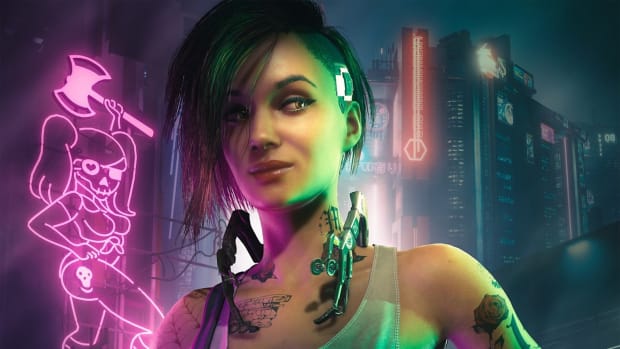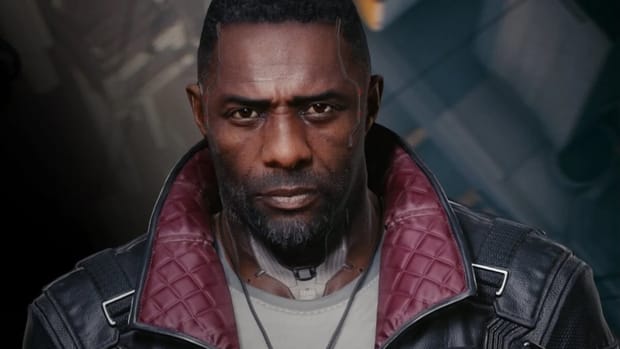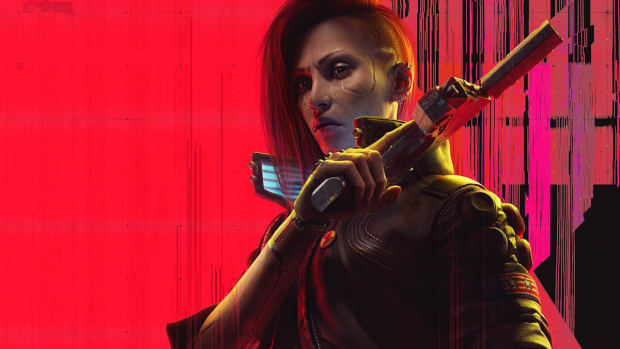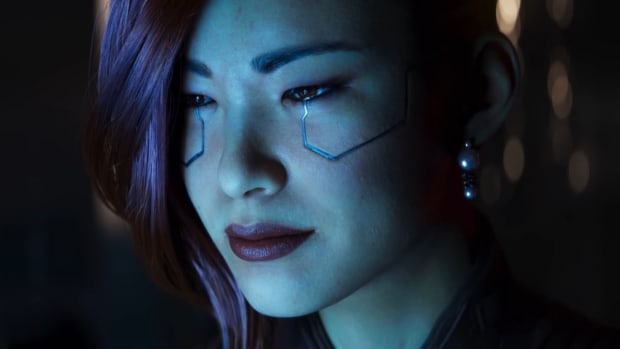Composing video game music is tough at the best of times, and it's even more daunting when you're departing from an established style and creating a whole new culture and world with your sounds. Such was the task facing CD Projekt Red composers P.T. Adamczyk and Jacek Paciorkowski when they started designing the score for Cyberpunk 2077's Phantom Liberty expansion, and they tell GLHF that while the sounds and styles of Dogtown presented a unique challenge for them, it was also an exciting chance to do something completely new.
Adamczyk, who previously worked on short films such as The Streets of Antioch, along with CDPR’s Gwent and Thronebreaker games, says that Night City’s range of people and places helped guide his compositions in Cyberpunk 2077. The seedy backstreets and posh Plaza, the Nomads and corpos – all of it helped inspire a range of sounds that gave the city multiple identities. Phantom Liberty’s Dogtown was different, a single, densely-packed location with a story unlike anything the team told in the base game.
For Phantom Liberty’s new Darkstar and Growl FM radio stations, Adamczyk took a more hands-off approach than he had with the original game. He gave the artists CDPR partnered with free reign to exercise their imagination and explore what folk music might be like in the future, and while the foundational idea was using non-Western rhythms and tuning to create a sound unfamiliar to CDPR’s audiences, Adamczyk says he wasn’t too bothered if it actually happened.

“We asked them ‘if you could change traditional instruments or the sounds of whatever place in the world, replace that with a synthesizer or sampler, how would that sound?'" Adamczyk says. “And that translated to Darkstar. Growler FM also took advantage of that approach because when we were picking submissions for the radio setlist, the weirder it got, the better it got. We knew that this canvas is open and we could do pretty much anything as long as the core ingredient is there.”
Adamczyk’s core ingredient was a blend of futuristic edge with an element of unpredictability, of mixing genres and sounds that don’t go together and styles that leave the listener guessing at what’s coming in the next bar. The result, he says, was “something really fresh” and totally unlike the base game’s soundtrack.
For Phantom Liberty’s cinematic pieces and the melodies you hear every day in Dogtown, Adamczyk shifted his perspective from ideas to personalities.
“I think I started on the right foot with [Phantom Liberty,” he says. “I started with the thing that ended up being the So Mi-slash-Reed theme, and once I had that, everything started falling into place. I found that I could use this theme in a lot of different arrangements, and it didn't matter if Reed wasn't on screen or if So Mi was on screen, it just added another layer two of meaning to any scenario once it started playing.”

Paciorkowski handled the spy thriller themes for Phantom Liberty and drew on his longstanding interest in all things espionage to help bring some of Dogtown’s most important moments to life. Paciorkowski says one of his biggest inspirations was John Perkins’ semi-autobiographical novel Confessions of an Economic Hitman, but he looked to anything that wasn’t “obviously” a spy theme and that wasn’t actually a sound.
“It starts from my love for well, not just spy thrillers as a genre, but generally spy operations around the world – the CIA. MI6, the KGB, and all the books around them and the real operations they carried out," Paciorkowski says. "I also draw a lot of inspiration from pictures, so like, whenever I see something I would imagine sound to it.”
With these core ideas in place, Adamczyk and Paciorkowski started working in what they say is the usual CDPR way. The team identified the game’s needs and pinpointed the big, emotional moments, “surprise buttons,” and narrative pivots whose sounds would influence everything around them. Whether it’s a major plot beat or a side mission, Adamczyk tells me they handle everything in a “cinematic way,” treating every quest as if it were an episode of a TV series, and while that angle takes a lot of work, Adamczyk says the reward is worth the effort.
“I can tell you that there's nothing like playing back your cue in game and then everything that didn't work a week earlier because the track was too short or it could go in a different [emotional] direction – it clicks,” Adamczyk says. “And you can play it. No matter the play style, it works. I mean, this is just the best feeling.”

Like in any game development project, Adamczyk says composing for Phantom Liberty included plenty of moments where things just didn’t work or a scene changed at the last minute and prompted an entire rewrite of a piece.
“This is your everyday at CDPR and any other studio where you're making a score for a game,” Adamczyk says. “Even small things have a big effect. Let's say, the dialogue has been rewritten, but even though it it only has two or three additional lines, the overall quality of the dialect changes. Or even if the lighting changed from darker to lighter in a scene. That's something you need to address musically.”
“When you write a score for a game as big as Phantom Liberty, you just have to accept that you will be writing a lot of stuff and then doing the whole thing all over again.”
How a composition fit with a specific moment is only part of the challenge. Adamczyk says the team also has to consider when a track will repeat, what effect it has if the player doesn’t make a choice immediately, and how to mask the “gamey” elements of loops and transitions so it still comes across as a cinematic experience.
“If you go through our engine and all the cues, outros, ending cues, and cuts for big moments, they probably each have 25 little pieces following along with player progression,” Adamczyk says. “Figuring those out that that was that was really tricky, but I'm really proud of what we did.”

Paciorkowski says the two biggest highlights for him were getting the “vibe” right for President Meyers and antagonist Kurt Hansen and also having the opportunity to run against the rest of Phantom Liberty’s and even Cyberpunk 2077’s darker tone.
“There's one moment, I can't reveal too much, because some people may not be aware of it yet, but there is a moment when I was tasked with with writing a short jingle using a classical Spanish guitar. And then it sort of blows into a full combat track, and it definitely sticks out – I hope in a good way – from the rest of the tracks.”
“We think of it as our little Tarantino-esque moment of Cyberpunk,” Adamczyk adds.
The end credits sequence is Adamczyk’s proudest moment from the project. It’s an ambitious piece featuring Polish singer-songwriter and X-Factor winner Dawid Podsiadło, work from three studios and an orchestra in Prague, and it was all recorded live except for some synthesizer work that Adamczyk handled later. Adamczyk says they could’ve done a nice synth track and left it at that, but that was never an option he seriously considered.
“I always treated the song like a love letter to our community and to the ones that stayed with our game. I really, really wanted it to go big as a thank you to everybody, to pull out all the stops and create a perfect ending for Phantom Liberty.”
If you want to check out Phantom Liberty's soundtrack and the score for the hit anime Edgerunners, Sony Music and CDPR launched both on streaming services, including Spotify and Amazon Music.
More must-reads:
- Former NBA star says Anthony Edwards becomes face of the NBA if Wolves knock off Nuggets
- LSU HC pins transfer portal struggles on reluctance to 'buy players'
- The 'Yearly NBA playoff leaders in PPG' quiz
Breaking News
Customize Your Newsletter
 +
+
Get the latest news and rumors, customized to your favorite sports and teams. Emailed daily. Always free!

